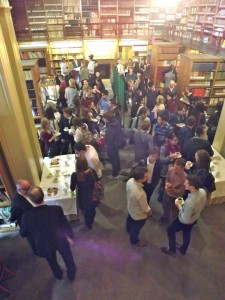A core part of our upcoming conference programme is a session on ‘Skills for Sustainability.’ At our conference in 2013 we introduced a range of ways by which geologists can support the fight against global poverty, including hydrogeology, engineering geology, natural resource management, hazards and disaster reduction (and much more). This technical understanding of geology can have a huge impact on development, but for geologists to have maximum impact and effectiveness there are other key skills and disciplines to consider.
In this post we introduce these skills and outline their importance…
**Meaningful Consultation**
The UN Guiding Principles on Business and Human Rights and the work of Professor John Ruggie have set a framework for the consideration of government and company responsibilities in protecting and respecting the human rights of those affected by industrial activity, and in ensuring that communities have adequate access to remedy should their rights be infringed. A key concept promoted by the UNDPs is that of ‘meaningful consultation’ in the context of due diligence processes. This presentation will explore different aspects of public consultation at the local level with reference to case study material from Russia, Greenland, Azerbaijan and Nigeria.
This talk will be delivered by Dr Emma Wilson, a Principal Researcher at the International Institute for Environment and Development (IIED) and head of the Energy and Extractive Industries Team. Emma works on a range of energy issues, from inclusive business models for decentralised energy access, to corporate responsibility and meaningful community engagement in relation to large-scale oil, gas and mining projects.
**Strengthening Technical Capacity**
Last year, at the first GfGD Annual Conference, our opening remarks came from Jeremy Lefroy MP. Jeremy, a member of the international development select committee, shared of a time when he was visiting Sierra Leone and speaking with Government Ministers there. When asked what development support they needed, their immediate response was ‘geologists’. There is a huge importance in strengthening the geoscience skills base of countries in the global south, enabling them to manage their own natural resources, effectively monitor environmental parameters and generate, store and utilise geoscientific data.
This talk will be delivered by Dr Joseph Mankelow, BGS Team Leader for Mineral Resources and Policy. Joseph has significant experience of supporting capacity-building activities in Africa, including Liberia, Botswana and Mauritania. His work aims to support access to minerals data sets, training and policy – as well as raise the profile and recognition of national geological surveys.
**Understanding Culture and Cross-Cultural Communication**
Working in international development often means working in cultures very different to our own. Not only is the language different, but there may be important differences in behaviours, learning styles, belief structures and the values placed on different relationships or even geographical locations. Understanding the culture we are going to be working in, and how to communicate effectively in this culture, is an essential part of poverty-fighting projects. Failure to do so can result in the project not having maximum impact or just not working.
This can be seen in water and sanitation projects, where such skills are fundamental at every stage of implementing a water source – understanding a community’s needs, identifying a location, undertaking a survey, drilling and training the community to manage and maintain it. If culture is not considered, and communication not effective, a project could be poorly located, an inappropriate technology selected, or a community left without the essential skills they need to ensure clean water is supplied in the long term. Whether it is improving disaster risk reduction, working in a multi-cultural team on an oil project in West Africa, constructing a road or explaining a minerals project so that a community can understand the implications and engage in a meaningful way – cultural understanding and cross-cultural communication are vital skills for the geoscientists involved.
This talk will be delivered by Arjen Naafs, a hydrogeologist and Technical Advisor (South Asia) at WaterAid – one of the leading water and sanitation NGOs in the world.
**Engaging with Policy**
Policy is a course of actions proposed by organisations/governments, and often adopted and put into practice. Within a development context, public policy could relate to the work of the UK Department for International Development, or policy being drafted and implement in countries such as, for example, Tanzania. Engaging with policy can take multiple forms, from writing to your MP, submitting evidence to a select committee inquiry (as is sometimes done by the Geological Society of London) or acting as an external/specialist consultant. All of these require excellent communication, diplomacy and a willingness to know your knowledge limitations.
This talk will be delivered by Nic Bilham, Director of Policy and Communications at the Geological Society of London. Nic is responsible for public policy matters and government relations at the Society.

